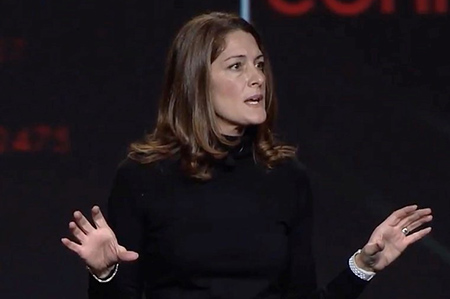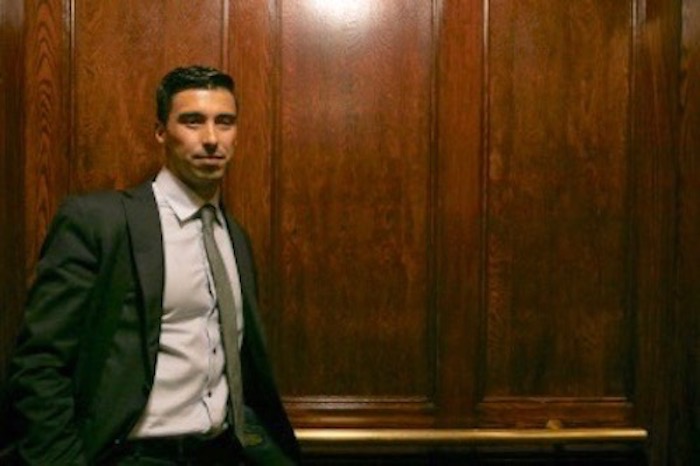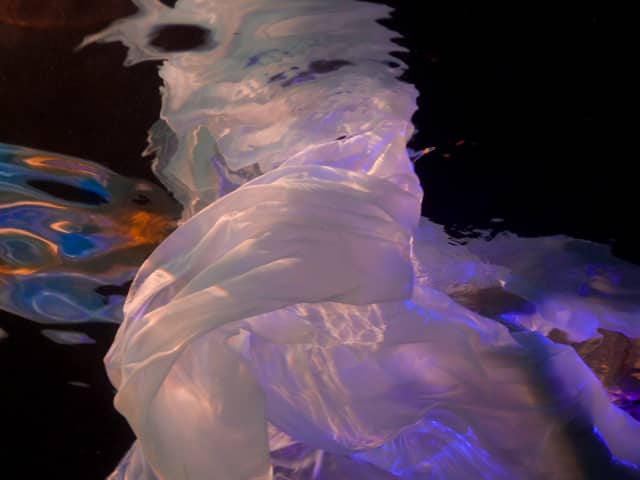Daily Business Report-June 23, 2020
Tesla Roadster prototype (Tesla)
Tesla is Now the World’s Most Valuable Automaker
Visual Capitalist
Even in the midst of a pandemic, Tesla continues to reach new heights.
The company, which began as a problem-plagued upstart a little over 15 years ago, has now become the world’s most valuable automaker – surpassing industry giants such as Toyota and Volkswagen.
This milestone comes after a year of steady growth, which only hit a speed bump earlier this year due to COVID-19’s negative impact on new car sales. Despite these headwinds, Tesla’s valuation has jumped by an impressive 375% since this time last year.
How does Tesla’s value continue to balloon, despite repeated cries that the company is overvalued? Will shortsellers declare a long-awaited victory, or is there still open road ahead?
__________________________________

Sugar-coating disguise allows for coronavirus infection
According to Mary Poppins, a spoonful of sugar helps the medicine go down. In the case of coronavirus, a cloak of sugar helps the virus infect. This sugary-coating disguise, made of molecules called glycans, tricks the human immune system into identifying the microbe as harmless. The resulting recognition failure keeps the body from generating the defensive antibodies needed to destroy the invading coronavirus.
Using the National Science Foundation-funded Frontera supercomputer at the Texas Advanced Computing Center, Professor of Chemistry and Biochemistry Rommie Amaro—along with her UC San Diego colleagues and researchers from Maynooth University in Dublin, Ireland, has uncovered the atomic makeup of the coronavirus’s sugary cloak. The simulation and modeling reveal that glycans also prime the coronavirus for infection by changing the shape of its spike protein. Scientists hope this basic research will add to the arsenal of knowledge needed to defeat the COVID-19 virus.
__________________________________

A politican’s son lobbies
to let people on parole vote
Esteban Núñez’s quest for redemption
In early March, before the pandemic closed the state Capitol to visitors, Esteban Núñez led former prisoners through the regal building where his father was once one of California’s most powerful politicians.
He exuded know-how, his shiny loafers clicking across marble floors as they moved toward an elevator. Down a hallway. Into the office of a lawmaker they hoped to convince to grant voting rights to Californians released from prison, but still on parole.
Not long ago, Núñez himself had been one of them.
“As you know, I’m personally impacted,” Núñez told a legislative aide, inviting others to share their rehabilitation stories.
Núñez didn’t say much more about himself at that meeting. He didn’t have to.
The 31-year-old son of Fabian Núñez, a former Democratic Assembly speaker, Esteban Núñez is well-known by insiders as the beneficiary of one of California’s most notorious acts of clemency. His father’s bipartisan friendship with then-Gov. Arnold Schwarzenegger helped Núñez win early release after he pleaded guilty to manslaughter for his role in a 2008 knife fight that injured two men and killed Luis Santos, a 22-year-old college student.
On Schwarzenegger’s last night in office in 2011, he announced cutting Núñez’s 16-year prison sentence to seven years, saying the term was excessive because Núñez did not inflict the fatal stab.
The younger Núñez was released from prison in 2016 and is now a regular at the statehouse. As a policy director for the criminal justice nonprofit program Cut50, Núñez’s focus is voting rights for Californians on parole. A November ballot measure will give then that right if the Senate approves it this week.
__________________________________
(Corrected Copy)
Del Mar Fairgrounds to cut staff
by 58 percent due to COVID-19
Permanent civil service staff of the Del Mar Fairgrounds will be reduced by 58 percent because of “severe financial losses” resulting from the COVID-19 pandemic, fairgrounds officials said.
From March through May 2020, revenues were down 66 percent. Combined with the postponement of the San Diego County Fair and no patrons for this year’s summer horse racing meet, revenues are estimated to be down 92 percent by the end of the summer, officials said. Mass gatherings equate to 90 percent of the 22nd DAA’s revenue base.
“Until it is safe to host events again, reducing our staffing levels is crucial to the survival of the Del Mar Fairgrounds,” said Tim Fennell, CEO and general manager of the Del Mar Fairgrounds. “We must preserve this community treasure in order to continue its legacy for future generations as an economic engine for the region and a beloved entertainment and education destination. I look forward to the day when we can operate at full strength again.”
__________________________________
Nanosponges could intercept
coronavirus infection
Nanoparticles cloaked in human lung cell membranes and human immune cell membranes can attract and neutralize the SARS-CoV-2 virus in cell culture, causing the virus to lose its ability to hijack host cells and reproduce.
The first data describing this new direction for fighting COVID-19 were published on June 17 in the journal Nano Letters. The “nanosponges” were developed by engineers at the University of California San Diego and tested by researchers at Boston University.
The UC San Diego researchers call their nano-scale particles “nanosponges” because they soak up harmful pathogens and toxins.
__________________________________
AP changes writing style
to capitalize ‘b’ in Black
The Associated Press changed its writing style guide Friday to capitalize the “b” in the term Black when referring to people in a racial, ethnic or cultural context, weighing in on a hotly debated issue.
The change conveys “an essential and shared sense of history, identity and community among people who identify as Black, including those in the African diaspora and within Africa,” John Daniszewski, AP’s vice president of standards, said in a blog post Friday. “The lowercase black is a color, not a person.”
The news organization will also now capitalize Indigenous in reference to original inhabitants of a place.
(Editor’s Note: SD METRO and the Daily Business Report adhere to the AP style guide.)
__________________________________
San Diego County farmers fight for
share of federal COVID-19 relief money
Farmers who grow San Diego County’s most valuable crops may miss out on federal cash for coronavirus-related losses because some of their agriculture products — primarily flowers, nursery plants and exotic fruits — are not included in the relief program. The growers are pushing to get their specialty crops added to the government’s eligible list.
__________________________________
Cubic partners with InComm to deliver network
of stored value reloads for transit agencies
Cubic Corporation’s Cubic Transportation Systemsbusiness division is partnering with InComm, a payments technology company, to provide a nationwide network of stored value reloads for transit agencies.
Through this partnership, all transit agencies utilizing Cubic’s TouchPass solution will be able to leverage InComm’s retail network to establish a broad, fare product sales program in their service area that includes national and regional chain stores as well as local merchants, while avoiding all the headaches of creating, managing and servicing the program.
__________________________________
Balboa Park Conservation Center receives
NEH CARES Act grant of $52,417
The Balboa Art Conservation Center (BACC) has received a National Endowment for the Humanities Coronavirus Aid, Relief, and Economic Security Act or CARES Act grant in the amount of $52,417.
BACC, the region’s only art conservation center, is one of just 311 organizations to receive funding out of 2,333 eligible applications throughout the country. The grant will support the development of innovative tools, practices, and procedures at BACC, namely cross-training art conservators and implementing a virtual pre-examination program for art objects so that staff can pivot to provide programming and services during the COVID-19 health pandemic.
__________________________________

San Diego art project competes in
international CODAaward competition
A “Liquid Light” project at the Intercontinental Hotel San Diego is one of hundreds of commissioned artworks from around the world competing for a CODAaward, given annually to works that successfully integrate art into interior, architectural and public spaces.
The two projects that collect the most votes will receive a coveted People’s Choice CODAaward and be announced, alongside all of this year’s CODAaward winners, in the August issue of Interior Design magazine.
Liquid Light is a 2 story tall, 150-foot-wide permanent public art installation draping the InterContinental Hotel in San Diego with video projection mural. The idea was to integrate the concept of water as an integral part and showcase the underwater world of the Pacific Ocean that is the front porch of the hotel.
Artist: Roark Gourley
Liturgical Consultant: Michael Janke, Sinitar
Art Consultant: Michelle Lance


